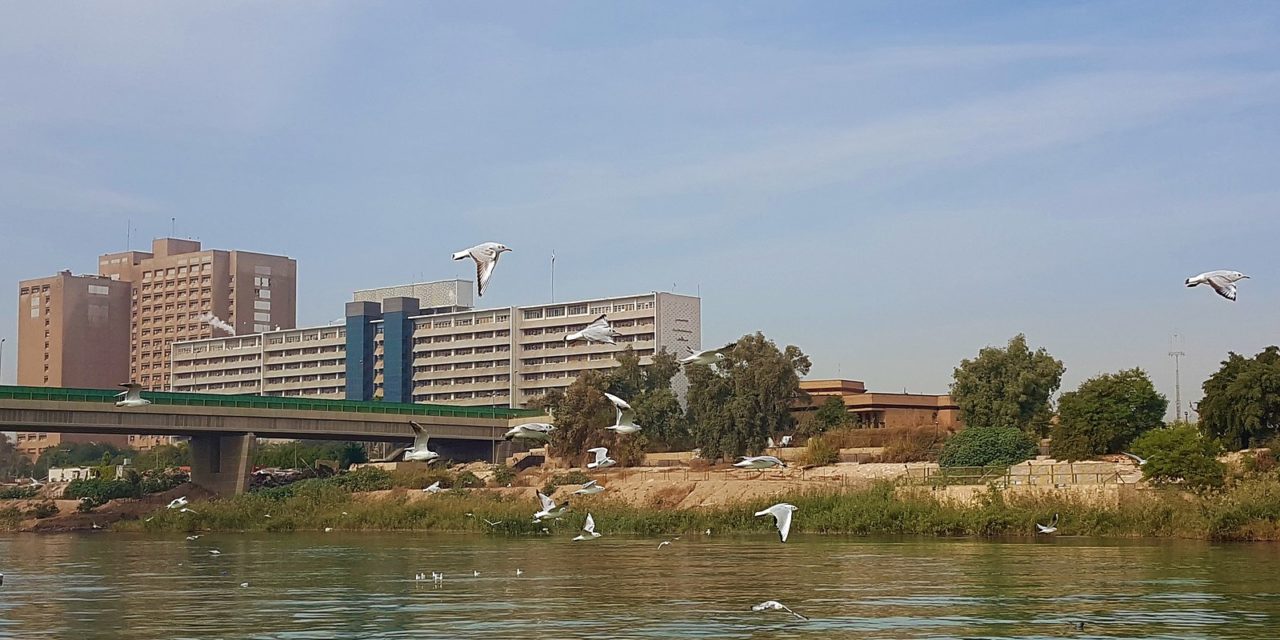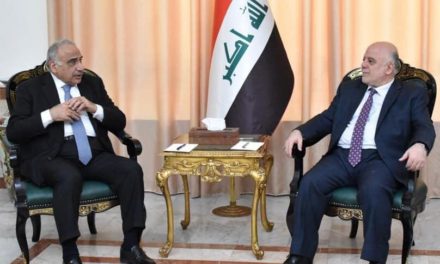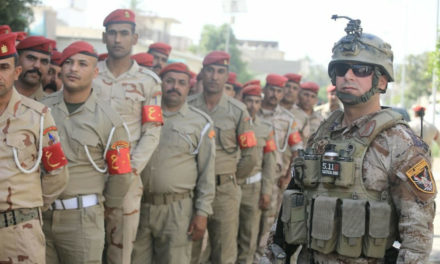(Photo: Medical City in Baghdad. Mohammed Huzam/Wikimedia)
Whenever war is mentioned, Iraq is mentioned as well. Iraq is the country that has had the lion’s share of blood, ruin, and destruction, and with these came the burden of mental health deterioration. However, no one dares to admit that this crisis exists. Iraqi society, being conservative, still considers discussing mental health a taboo, and some even see it as a “disgrace”. There is a lack of awareness and an unwillingness to speak that meets those who decide to break the silence.
Successive traumas, the most prominent of which was the US invasion of the country in 2003, left behind scars that are carried intergenerationally. Iraqi society as a whole is wounded, so much so that one may think that these scars are now carved into Iraqi genes.
During the outbreak of the Covid-19 pandemic in 2020, campaigns were launched on social media about the importance of mental health during the quarantine period. This was when the first positive steps were taken to discuss the issue. Although the subject was raised with wariness and within narrow circles, it became a subject of discussion. It was a real opportunity to look at ourselves more seriously.
Since the stories of Iraqis are countless, I decided to talk about my personal experience, seeking individually to heal from “trauma”. I decided to go through sessions with a therapist. I tried to reach out in a small circle to find a therapist based in my city. But the more I searched, the more I discovered the difficulties in accessing therapy. On one hand, many therapists had weak skills. On the other hand, it was difficult to maintain privacy in a society that thrives on unfair rash judgements and an eagerness to label mental health illnesses as shameful.
Therefore, I took the path of least resistance and started remote sessions with some Arab therapists outside of the country. However, the negatives of this path outweighed the positives for several reasons. Most notably, these services are not available to everyone, their cost is high, and they can never be a substitute for face-to-face sessions.
Despite this, I was able to reach a conclusion after several sessions in which we touched on the root of the problem by diving deep into childhood memories, and most importantly, the trauma of the 2003 invasion. It seems that the road to treatment is long, and if the tools were available and those around us had sufficient awareness, the approach would be different. But the limited psychological support services in Iraq prevent this.
Reports and studies related to the war focus on its cost and material damage, but its psychological effects and social repercussions were rarely mentioned, despite its heavy burden that we, as Iraqis, carry wherever we go. The war, violence, and political instability in Iraq have caused psychological troubles and disorders among Iraqis. The most prominent of which were, “Fear, depression, anxiety, irascibility, and suicidal thoughts, in addition to drug addiction,” according to an official source in the Iraqi Ministry of Health that I interviewed.
The deterioration of mental health services in Iraq is no longer surprising. Studies conducted in conflict-affected areas all over the world have consistently shown that armed conflicts have a serious negative impact on mental health. According to the World Health Organization, “One in five people living in areas beset by conflict have mental health conditions”.
Despite absence of accurate national official statistics in the mental health field, the official in the Mental Health Department at the Ministry of Health acknowledged that, “There is an increase in the number of those who need support in mental health after each crisis”. He also pointed out that, “The percentage allocated to mental health from the annual budget of the Ministry of Health is not commensurate with the scale of the problem“.
Therefore, Iraq still lacks funding and expertise in this field. Al-Rashad Training Hospital for Psychiatric and Mental Illnesses is considered a public medical center that provides psychological care, and it is often for patients with mental disorders. The lack of psychosocial support and counselling centers exacerbated the crisis. In the same context, the services provided by non-governmental organizations are not sufficient to bridge the gap and meet the enormous needs of the population.
20 years after the end of the war, priority must be given to ensuring access to basic mental health care and treatment, including information and services. Iraq should work to provide psychological care at the community level, educate people, especially those who are not active on social media and those who suffer from a low socio-economic status, develop national policies, programs, and legislation, support research, monitoring and development of human resources, and increase funding for mental health services.
We are still not sure what the percentage of undiagnosed cases are in the country, but there is no doubt that doing more to address mental health needs is not a luxury, but a necessity to rebuild society in an effective way.
This essay is part of a special series – Iraq after 2003: The Voices of Iraqi Women

Raghad Kasim
Raghad Kasim is an Iraq based researcher and activist.










